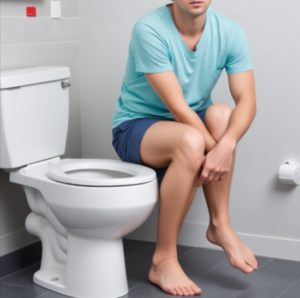Can antibiotics cause constipation
Can antibiotics cause constipation? This is a question that many people may have when facing gastrointestinal issues after taking antibiotics.
While antibiotics are designed to fight infections by killing harmful bacteria, they can also disrupt the balance of beneficial bacteria in the gut.
This disruption can lead to various digestive problems, including constipation.

Common Side Effects of Antibiotics
- Antibiotics are widely used to treat various bacterial infections.
- While they are effective in killing harmful bacteria, they can also have unintended effects on the body.
- Common side effects of antibiotics include nausea, diarrhea, and stomach pain.
- These side effects occur due to the disruption of the natural balance of bacteria in the gut.
Understanding Constipation
Constipation is a common digestive problem characterized by infrequent or difficult bowel movements.
It can be caused by various factors, including a low-fiber diet, dehydration, and certain medications.
When someone is constipated, their stool becomes hard and dry, making it challenging to pass.
Can Antibiotics Cause Constipation?
Yes, antibiotics can cause constipation in some individuals.
When antibiotics kill off the good bacteria in the gut, it can result in slowed digestion and reduced muscle contractions in the intestines, which are essential for regular bowel movements.
Additionally, antibiotics can cause changes in the composition of the gut microbiota, leading to an imbalance that affects bowel function.
Mechanisms Behind Antibiotic-Induced Constipation
- The exact mechanisms behind antibiotic-induced constipation are not fully understood.
- However, it is believed that the disruption of the gut microbiota plays a significant role.
- The gut microbiota is a complex ecosystem of microorganisms that help maintain digestive health.
- When this balance is disrupted by antibiotics, it can lead to constipation.
Risk Factors for Developing Constipation While Taking Antibiotics
Not everyone will experience constipation as a side effect of antibiotics.
Several factors can contribute to the likelihood of developing constipation while taking antibiotics.
The type of antibiotic, dosage, and the individual’s overall health can all play a role.
Those who have a history of digestive problems or a weakened immune system may be more susceptible to antibiotic-induced constipation.
Tips to Prevent Constipation While on Antibiotics
If you are taking antibiotics and want to prevent constipation, there are several steps you can take.
First, it’s crucial to maintain good hydration by drinking plenty of water throughout the day.
Additionally, eating a high-fiber diet can help promote regular bowel movements.
Foods such as fruits, vegetables, and whole grains are excellent sources of fiber.
Finally, incorporating probiotics into your diet or taking a probiotic supplement can help restore the balance of beneficial bacteria in the gut.
Treating Constipation Caused by Antibiotics
- If you are already experiencing constipation after taking antibiotics, there are several remedies you can try.
- Increasing your fiber intake can help soften the stool and make it easier to pass.
- You can do this by consuming more fruits, vegetables, and whole grains.
- Drinking prune juice or taking a gentle laxative may also provide relief.
- It’s important to consult with a healthcare professional before using any over-the-counter laxatives to ensure they are safe and appropriate for your situation.
When to Seek Medical Help for Antibiotic-Induced Constipation
While constipation caused by antibiotics is generally not a severe condition, there are instances where medical attention may be necessary.
If you experience severe abdominal pain, bloating, or blood in your stool, it’s crucial to seek medical help immediately.
These symptoms could indicate a more serious underlying issue that requires prompt treatment.
Conclusion and Final Thoughts
In conclusion, while antibiotics can be life-saving medications, they can also have unintended effects on digestive health, including constipation.
The disruption of the gut microbiota and slowed digestion are some of the mechanisms behind antibiotic-induced constipation.
It’s important to note that not everyone will experience constipation as a side effect of antibiotics, but it’s essential to be aware of the potential risk.
Understanding the potential side effects of antibiotics and seeking medical advice can help manage these issues effectively.
If you are experiencing constipation after taking antibiotics, consult with a healthcare professional to find the best solution for your specific situation.
Please note that this is a general overview and should not be considered medical advice.
It is always recommended to consult with a healthcare professional for personalized guidance and treatment options.